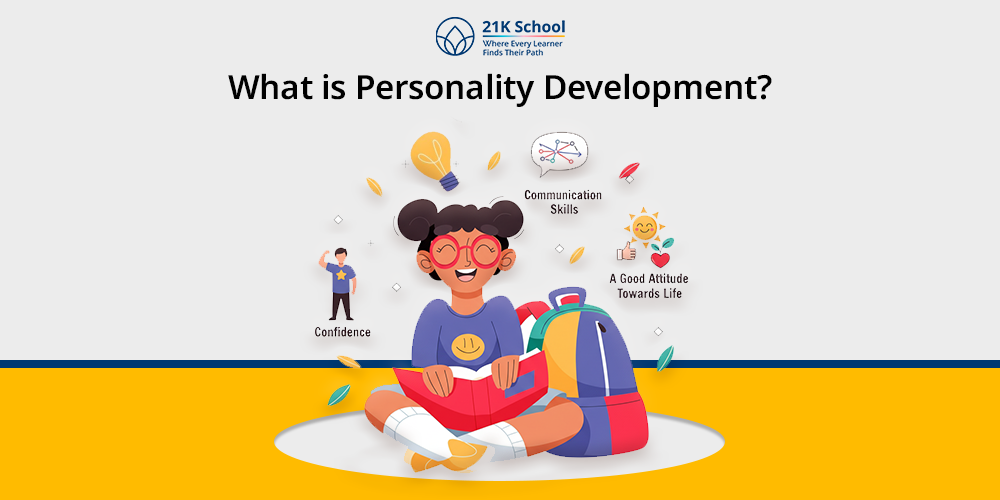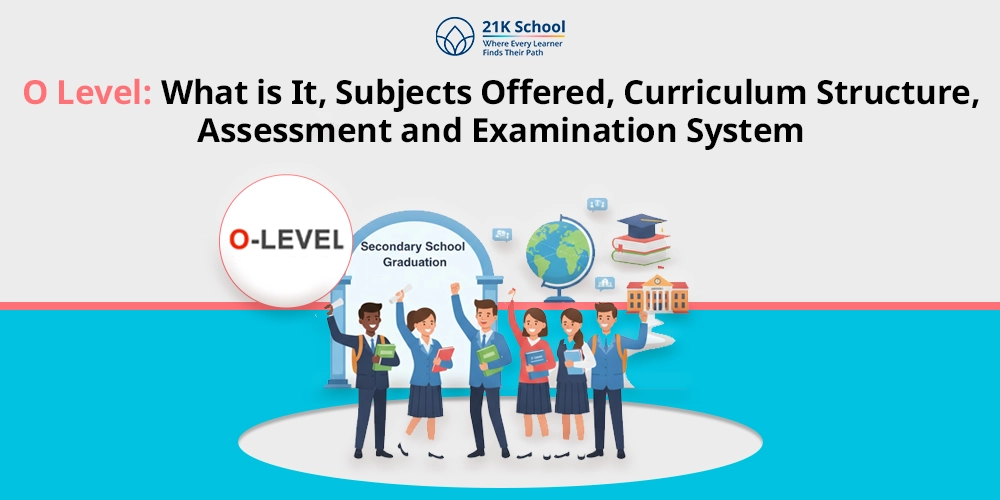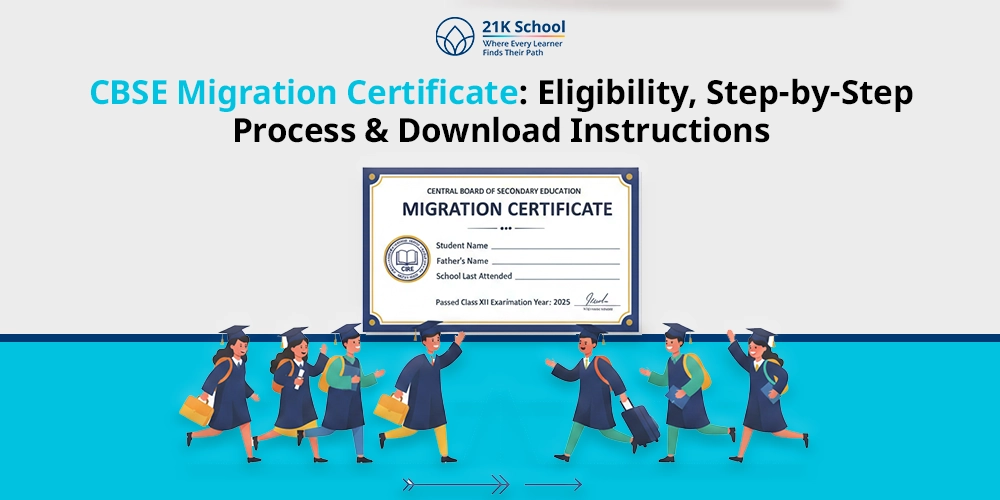
Why is personality development important in adapting to any situation?
In the modern world, first impressions are the last impression. Personality development is very important. It is about developing your personality by changing your mindset, your behaviour & your interactions.
Developing personality early is very important. And it isn’t about making students look better outwardly but inside as well. This gives students confidence , communication skills and a good attitude towards life.
Personality is changeable/adaptable according to need or situation. And personality development is not just for students / their education but also for adults / in the workplace. But personality development goes beyond self-improvement means being able to face life challenges with courage, make friends & goals.
Contents
What is Personality Development?
So personality development happens over a lifetime as different people develop their own habits of thinking, feeling and acting that make up their personality. It’s a basic idea of psychology – mixing natural things from birth with things learned from the world around us.
And it involves changing someone’s mind, skills and self-esteem through innate and external influences like genes, upbringing & social environment, etc.
Then communication, confidence and personal and professional success may follow. That helps them fit into society, at work / school / whatever – and they feel good about themselves.
But there are various personality development areas people work on based on their goals/dreams. They may be improving communication skills , emotional intelligence, leadership, assertiveness and adaptability, etc.
3 Stages of Personality Development
Personality development occurs in three stages: childhood, adolescence and adulthood.
All these stages are not without difficulties and milestones these stages are childhood, adolescent, and adulthood. The following are the stages of personality development here.
1. Childhood
In this period, a child develops emotional attachments – usually with parents or primary caregivers – which build trust and security.
So the child learns by observation and imitation – by watching adults and peers. Rapid cognitive development of children affects how the child thinks about the world, processes information and stores memories.
How the child is treated, disciplined and supported early affects self-image, confidence and moral understanding.
2. Adolescent
The physical, emotional and psychological transitions are called adolescence. Most important here is the search for personal identity.
Teenagers question their values, beliefs and place in society. It is a period of emotional highs and lows, greater self-awareness and social evaluation.
Teenagers want independence and autonomy, which may cause conflict but also critical thinking and decision making.
3. Adulthood
Most adults are emotionally and psychologically mature. They have more stable personalities because they have a concrete identity and purpose. Relationships get deeper and more intimate at this stage – many people take long-term commitments or start families.
Often, career and personal goals are in focus – a feeling of achievement/worth and social role. At this stage, life choices are reexamined, adaptation to change and personal satisfaction are sought – personality development is a process that lasts.
4 Types of Personality Development
Personality development is divided into four types known as physical, emotional, social and emotional. They help in holistic development as well as in personality development. Types of personality development are mentioned below.
1. Physical
Body image and outward appearance are all about physical personality development. It is about health, posture, hygiene, body language and fitness.
A person’s physical presence often makes the first impression – so learning to groom, dress well and carry oneself confidently can change how others perceive you.
Physical health also gives more energy, alertness and participation in social, professional life and personality development.
2. Mental
Mental personality development develops intellectual, critical thinking and decision making skills . It is how someone thinks, learns, deals with situations and problems.
A mentally strong person is open to new ideas and experiences. They understand situations rationally, they set goals and they stick to them. Reading, talking, resolving problems – all this is mental development.
Mind development is good for self-awareness and a balanced and thoughtful life – good qualities of a strong personality.
3. Emotional
How you develop emotional awareness and emotional management is important. So it’s about feeling what you feel, controlling your reaction and being sensitive to other people’s emotions.
People with a developed emotional personality are balanced, compassionate and resilient in difficult situations. You get that kind of development also in forming relationships and dealing with conflicts in a mature way.
4. Social
Social personality development is about relationships with others. That includes better communication, social learning , more approachable & cooperative behaviour.
A good social personality helps you to get along with people, work in teams and make a good impression in both personal and professional life. Being socially aware and respectful builds trust and respect in society.
5 Importance of Personality Development
Developing your personality is very important for personal and professional success – it builds confidence, communication & leadership skills & attitude to problems. Here are some of the personality development issues.
1. Improves Communication
Personality development affects how we talk to others. It helps them be more articulate, clear, and confident in their thoughts, ideas and emotions.
Over time personality development improves verbal and non-verbal communication such as voice tone, facial expressions and body language. When people do that, they also become better listeners.
Communication skills well builds good personal relationships as well as professional/social relationships.
2. Boost Confidence
Perhaps the most obvious result of personality development is confidence. People learn about themselves – strengths, weaknesses and goals-and then they know who they are and what they can do.
And this inner confidence shows in their walks, talks & decisions as well as their interactions with others. A confident person will take initiative, take criticism constructively and not be afraid of failure.
Building up self-esteem & belief in abilities is part of personality development.
3. Enhance Social Skills
People need social skills to work in relationships and in groups. Personality development teaches people how to treat people differently – from background, opinion or personality.
Through personal development people learn empathy , active listening, patience and how to read social cues.
4. Reduce Stress
A developed personality has emotional intelligence , self-awareness and mental resilience-these help with stress. People learn to identify their emotions, what makes them happen and how to respond calmly instead of impulsively.
And this emotional maturity helps them to keep their cool in difficult situations and not be overcome by pressure or negativity. In personality development also time management skills , problem solving and relaxation techniques are taught.
5. Encourage Personal Growth
Personality development is about self-improvement and self-discovery. That causes individuals to rethink their behaviours, habits, values, and goals. So you learn new skills, you get more emotional intelligence and you get a more balanced view of life.
Personal growth is not fixing flaws but being the best version of oneself. That enables people to reach their fullest potential, set goals and live a more meaningful life.
5 Examples of Personality Development
Types of personality development examples are used in using personality/developing personality traits in students, etc. Most of those are examples of time management / adaptability / leadership, etc. Check out the best examples of personality development.
1. Time Management Skills
Time management is another good example of personality development – it’s about discipline , responsibility and prioritising. So a good time manager can do work, study, personal relationships and self-care without being overwhelmed.
Develop this skill and you get more productivity, less stress & better results at whatever goal you set. It also builds accountability and reliability – all good qualities for personal and professional success.
2. Adaptability
Adaptability is being able to change, adapt to new situations/changes, challenges in a positive/flexible way. In an ever-changing world, such personality development is very important. Being adaptable shows emotional strength and open-mindedness.
It means you want to learn, you want to hear feedback and you want to find solutions even in difficult situations/uncomfortable situations. It could be changing jobs at work, going to an unexpected event or meeting new people – adaptability helps people be calm, confident and productive.
3. Leadership
Leadership means leading others-inspiring them, leading them in a good direction. Leadership as a trait of personality develops confidence, accountability, communication and fair decision making.
A good leader motivates others, takes initiative & leads by example. So whether it is school projects, workplace teams or community efforts, leadership makes people look like trustworthy and useful contributors.
4. Collaboration
Working together to achieve something is called collaboration skills . It takes communication, respect, patience and sometimes compromise.
Having this trait as a part of personality helps people make friends, understand other points of view and work in groups. And in schools, jobs & family life collaboration is the key to success – most things are achieved working in teams, not alone.
5. Decision Making
Strong decision-making shows maturity, critical thinking, and confidence is to the key to a developed personality. A good decision-maker evaluates situations, consequences and actions based on their values and goals.
That lets them take charge of their lives, solve problems and react well under pressure. It also builds trust – people who are thoughtful are seen as reliable and responsible.
Learn top 10 personality development tips for students .
Factors Influencing Personality Development
Personality development is shaped by genetics, environment & life experiences. All of these interact to make a person what they are now. Factors affecting personality development.
1. Biological Factors
Things that we get from our parents through genes are called biological factors. They are: Physical appearance, temperament, brain chemistry and natural abilities. By definition a child is either calm, energetic or sensitive.
How the hormones work also affects how someone feels emotionally and mentally. But biological and other influences affect how someone develops and behaves in life.
2. Environmental Factors
The environment in which a person grows up influences personality. They mean home, neighbourhood, school or culture. Education, media exposure, parenting style , living conditions all affect how a person sees the world and how he or she responds to it.
A supportive, positive learning environment usually promotes confidence, curiosity and positive growth, whereas a negative or unstable environment might promote fear, insecurity or behaviour problems. Attitudes, habits and personality are affected constantly by our environment.
3. Social Factors
Families, friends, teachers and society in general influence personality development. From early childhood people learn from social experiences how to behave, talk and relate. Social norms, peer pressure & group dynamics affect how we think & act.
For example, children in caring and respectful social environments develop good emotional intelligence and social skills. Over time these interactions build a person’s confidence, values and ability to work with others.
4. Psychological Factors
Psychological factors are things inside of people – their internal thoughts, feelings, motivations & experiences. These are about how a person sees themselves, how they deal with study stress , what goals they set, and how they deal with success or failure.
Personal experiences, emotional well being, mental habits like optimism / self-doubt affect personality. What happens outside affects personality as well as how a person processes those events inside.
How to Improve Personality Development
Improved personality not only helps in developing a growth mindset but also in making students learn. Personality development is possible through activities/programs. Here are some ways of improving personality.
1. Observe Personality
Your personality improves with self-awareness. Watching your own behavior, reactions and habits reveals your strengths and weaknesses. That means being aware of how you act in different situations-how you behave when you’re under pressure, how you treat people & how you speak.
With awareness of personality traits you can find patterns that hold you back and change them. Self-observation is the first step to personal development.
2. Ask Feedback
People give you feedback about your personality. Friends, family, colleagues, mentors can give you honest feedback on how you come across and how you talk / behave in social or professional settings.
We don’t always know about certain habits or attitudes that harm us. By accepting constructive criticism/suggestions, you learn things that make you change your ways. Feedback also makes you humble and open – good for personality development too.
3. Read Books
Read a book on personality development-especially self-improvement, psychology, communication and leadership books! Books show you other points of view, strategies for overcoming difficulties & stories of personal growth.
They help with critical thinking and empathy because they show you other ideas/experiences. Regular book reading also benefits vocabulary and communication – two very important tools of a strong personality.
4. Sociate with Others
A balanced personality needs relationships. Interacting with friends, colleagues or members of different communities gives you new ideas, cultures and ways of thinking. Sociating teaches you social skills, empathy and adaptability.
It builds your confidence too – you can also practice communication, teamwork and leadership in real life situations. In other words, you learn about yourself and how to be in different situations.
5. Communicate with Others
Strong personalities need to communicate well. You learn to listen and think clearly in regular conversation. It teaches you to say things confidently and with open mind.
Miscommunications are eliminated, trust is built, relationships are built. And practicing communication – whether in casual talks, presentations or group discussions – helps you influence, lead and relate to others more deeply.
Final Thought
Personality development is a process that changes how we think, feel and experience the world. By focusing on physical, mental, emotional and social growth people build confidence, skills of communication & effectiveness in life.
Understanding personality factors and working on one’s own development through observation, feedback, reading and social interaction we can face challenges confidently make friends, relationships and work towards professional success. In the end personality development makes us better versions of ourselves – ready to adapt to any situation.


